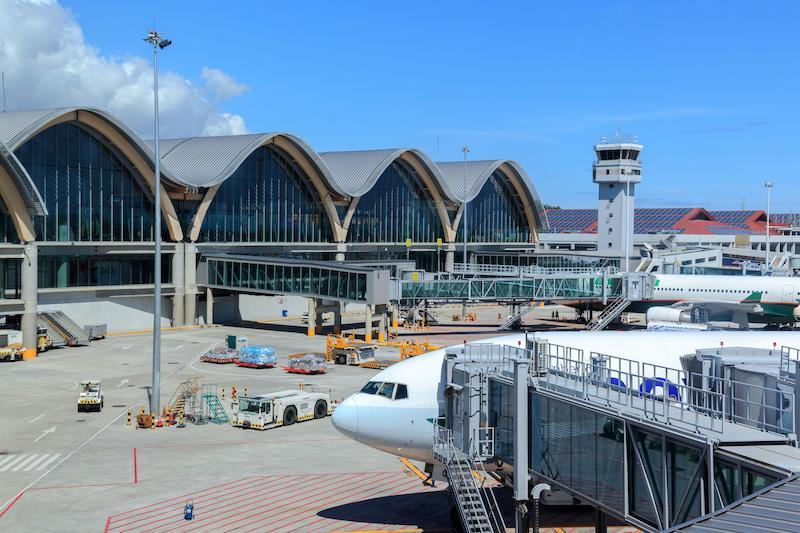
HONG KONG—Mactan-Cebu International Airport (CEB) is setting its sights on becoming a major transfer hub in the Philippines after Aboitiz InfraCapital completed its takeover of the airport's operator.
Speaking to Aviation Week from the sidelines of the Super Terminal Expo conference in Hong Kong, CEO Athanasios Titonis said the airport is seeking to boost transfer traffic to between 20-25% over the next three years, as part of the airport’s strategic growth efforts. CEB handled about 10 million passengers in 2023 and expects to record about 11.5 million this year, bringing it closer to the 12.6 million achieved in 2019.
“We have just begun implementing domestic-to-domestic connections and will launch international-to-domestic connections by next summer,” Titonis said. “Although we’re not the economical centre of the Philippines, we’re the geographical centre. We’re currently connected to 28 domestic destinations and believe there is a tremendous potential for a transfer product.”
Titonis anticipates that transfer traffic could total more than 3 million passengers per year within the next three years, up from a negligible total of self-transfer passengers at the present time.
The move coincides with Aboitiz InfraCapital's full acquisition of Aboitiz GMR Megawide Cebu Airport Corporation, the developer and operator of the airport, in late October. The deal comes two years after Aboitiz InfraCapital bought an initial 33.3% stake.
Titonis, who joined CEB in April 2023 following time spent as CEO of Ras Al Khaimah International Airport in the United Arab Emirates, said Aboitiz InfraCapital's acquisition is expected to bring increased investment in infrastructure.
The company is conducting a comprehensive review of the airport's current capacity and processes to identify opportunities for efficiency improvements. This includes potential terminal expansions and enhancements in connectivity between terminals.
In addition to boosting transfer traffic, Titonis said CEB is also focusing on expanding its international reach, further recovering capacity to major markets like South Korea and Japan, as well as securing new routes to points in Australia, India, Indonesia, Thailand and Vietnam. The recent introduction of an e-visa for Indian travelers by the Filipino government is expected to further boost traffic from India in particular, he explained.
Titonis also pointed to untapped markets in the Middle East, where there are strong flows of Filipino migrant workers. He said that the introduction of the Airbus A321XLR could be key to unlocking new destinations from the region over the coming years.





